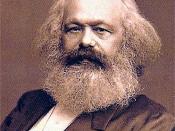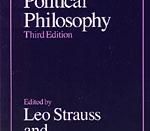Mr. Ralph Kam
PHL/215 - Methods and Applications
July 29, 2003
The World of Political Philosophy
The business of world affairs as we know it today is based on political endeavors of peace, war, economics, and government. When most people think of politics, they envision electoral campaigns, military operations, democrats arguing with republicans, Liberalists brawling with the GOP and the citizens protesting all of them. Politics and the philosophy of politics is a great deal above politicians squabbling over potential laws and the governing of countries. The study of political philosophy involves the state, its justification, the proper organization of its ethics, and the best form for the politics to contemporarily to exist (Moore and Bruder). Political philosophy incorporates the study of liberalism, communism, fascism, and conservatism.
The earliest recorded political philosophy begins with Aristotle and Plato. These great thinkers reflected one another in their beliefs of politics and how the Greek city-states were to be governed.
These men were not egalitarians, (egalitarians believe that all humans are equal in sociology, politics, economics.) Plato and Aristotle believed in five forms of political titles, Plato's perspective of government was aristocracy, tyranny, timocracy, democracy, and plutocracy. Whereas, Aristotle believed in monarchy, tyranny, oligarchy, polity, and democracy (Moore and Bruder).
Being and becoming, individuality and multiplicity, perpetual and short-lived existence was the belief of the early Greek philosophers. The undivided meaning of whole reality was argued about the relationships between these terms. This debate persists in
McBride 2
the field of political philosophy and ongoing question of the articulation between nature and justice.
In contemporary times, there are four revised categories of political philosophy. The first is liberalism; Liberalism can be understood as a political tradition, a political philosophy, and a general philosophical theory, encompassing a theory of value with the conception of...



Thanks
your paper was a lot of help. We had to have a presentation due in class that hade to do with fascism.
2 out of 2 people found this comment useful.